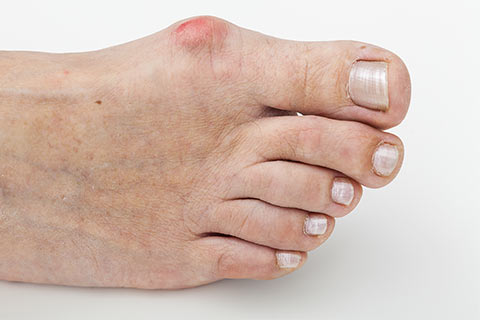
Here are some frequently asked questions and answers about bunions and their treatment.
- Will my bunion get worse?
- Because bunions are progressive, they don’t go away, and will usually get worse over time. But not all cases are alike. Some bunions progress more rapidly than others.
- How can I avoid surgery?
- Sometimes observation of the bunion is all that’s needed. A periodic office evaluation and x-ray examination can determine if your bunion deformity is advancing, thereby reducing your chance of irreversible damage to the joint. In many other cases, however, some type of treatment is needed, such as changes in shoes, padding, activity modifications, pain medications, icing, injection therapy, and orthotic devices. When the pain of a bunion interferes with daily activities, it’s time to discuss surgical options with your foot and ankle surgeon. Together we can decide if surgery is best for you.
- Is the surgery painful?
- The amount of pain experienced after bunion surgery is different from one person to the next. Most patients will experience discomfort for three to five days. If you closely follow your foot and ankle surgeon’s instructions, you can help minimize pain and swelling after your bunion surgery.
- What type of anesthesia is involved?
- Most bunion surgeries involve local anesthesia with intravenous sedation. That means your foot will be numb and you will be given medications to relax you during the procedure.
- How soon can I walk after surgery?
- It depends on your bunion and the surgical procedure selected for
you. In some cases, you may be walking a few days after surgery. If a more involved surgical procedure is required, it could be several weeks or months before your surgeon recommends full weight-bearing. - How soon can I drive after surgery?
- You may be asked to avoid driving for three to six weeks, depending on the procedure selected for you, which foot you use to drive, how fast you heal, and other factors.
- Can the bunion come back?
- Yes, there is a risk for bunion recurrence in some cases. Patients can help prevent this by following their doctor’s instructions to wear arch supports or orthotics in their shoe.
- If screws or plates are implanted in my foot to correct my bunion, will they set off metal detectors?
- Not usually. It can depend on the device chosen for your procedure, as well as how sensitive the metal detectors are.